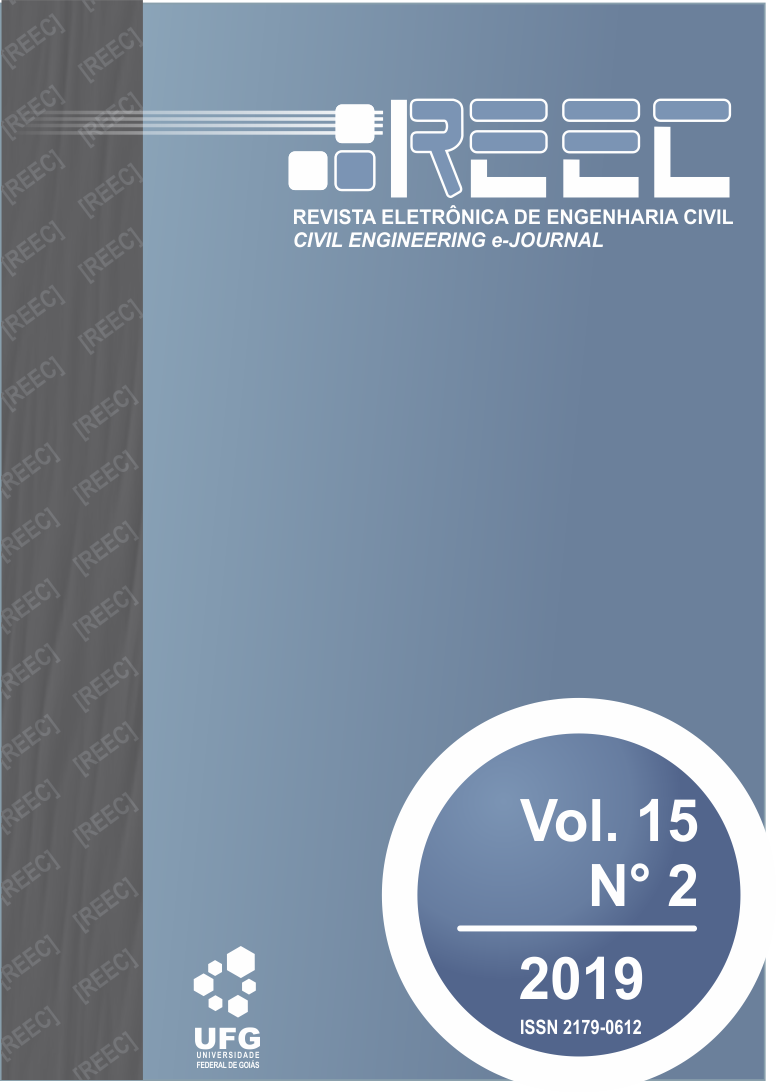ESTUDO DE VIABILIDADE ECONÔMICO-FINANCEIRA DA RECICLAGEM DE CONSTITUINTES DE RESÍDUOS DE CONSTRUÇÃO E DEMOLIÇÃO
DOI:
https://doi.org/10.5216/reec.v15i2.51991Resumo
RESUMO: O objetivo deste trabalho consistiu em avaliar a viabilidade econômico-financeira de empreendimentos de construção e demolição realizarem a reciclagem de fragmentos de concreto e cerâmica. Para tal, foram projetados quatro cenários econômicos considerando construtoras responsáveis pela geração de diferentes quantidades de resíduos de construção e demolição (RCD’s), nos quais foi orçada uma britadeira móvel para a reciclagem do material. Os custos relacionados à aquisição, operação e manutenção da britadeira, foram confrontados em fluxos de caixa, com as receitas provenientes do uso ou venda do material reciclado na forma de brita n° 0, bem como da economia com caçambas de entulhos. Posteriormente, a rentabilidade dos projetos foi avaliada mediante o fator de recuperação do capital, o valor presente líquido e a taxa interna de retorno. Quanto maior a produção de RCD’s, maior também é a relação custo-benefício da aquisição da britadeira e, em função da maior quantidade de brita n° 0 reciclada (passível de ser utilizada na produção de contrapiso ou comercializada) e da maior economia com caçamba de entulhos, maiores são as receitas adquiridas, menor é o período de retorno do capital investido e maior é a rentabilidade financeira dos cenários projetados. A reciclagem de RCD’s além de proporcionar benefícios ambientais, pode ser um investimento financeiramente atrativo.
ABSTRACT: The objective of this work was to evaluate the economic and financial feasibility of construction and demolition projects to carry out the recycling of concrete and ceramic fragments. For this, four economic scenarios were designed considering constructors responsible for the generation of different amounts of construction and demolition waste (RCD's), in which a mobile squeegee was used to recycle the material. The costs related to the acquisition, operation and maintenance of the crushing machine were compared to cash flows, with revenues from the use or sale of recycled material in the form of gravel No. 0, as well as the economy with litter bins. Subsequently, the profitability of the projects was evaluated by the capital recovery factor, the net present value and the internal rate of return. The higher the production of RCD’s, the greater the cost-benefit ratio of the purchase of the crushing machine and, due to the greater quantity of recycled crushed stone (which can be used in the production of sub-floor or commercialized) and the largest economy with a bucket of debris, the higher are the revenues acquired, the lower the return period of invested capital and the greater the financial profitability of the projected scenarios. Recycling RCD’s in addition to providing environmental benefits can be a financially attractive investment.
Downloads
Downloads
Publicado
Como Citar
Edição
Seção
Licença
Autores que publicam nesta revista concordam com os seguintes termos: Autores mantém os direitos autorais e concedem à revista o direito de primeira publicação, com o trabalho simultaneamente licenciado sob a Licença Creative Commons Attribution que permite o compartilhamento do trabalho com reconhecimento da autoria e publicação inicial nesta revista.
![[REEC] Revista Eletrônica de Engenharia Civil](https://revistas.ufg.br/public/journals/30/pageHeaderLogoImage_pt_BR.png)



